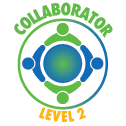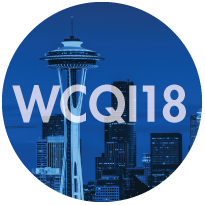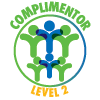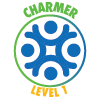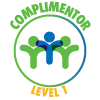62 Posts
The current CMQ/OE body of knowledge has been out now since 2018, and the next edition of the CMQ/OE handbook is at the printers now. A lot of work goes into updates of certifications, and the CMQ/OE is no exception. As of last year ASQE has taken firm control of the official certification materials. I think this is good, as certifications live on beyond any group of us members.
What is less clear is what is the current CMQ/OE BoK missing? As change moves faster and faster, do we need a mechanism to anticipate the next BoK? There are a lot of ideas in the universe of quality. As the current QMD Vice Chair for Education (and Webinars) I feel this question needs to be asked and answered by the QMD Division.
I propose we start with a list, a crowd sourced list. To all our QMD members:
Please reply with your ideas on what could be added. If your idea is not well defined or understood, you may expand on it here. Later we will run a poll to prioritize this list. It is not assured that these ideas will enter the next CMQ/OE BoK, but if a large group of practitioners agree, they may be.
What is less clear is what is the current CMQ/OE BoK missing? As change moves faster and faster, do we need a mechanism to anticipate the next BoK? There are a lot of ideas in the universe of quality. As the current QMD Vice Chair for Education (and Webinars) I feel this question needs to be asked and answered by the QMD Division.
I propose we start with a list, a crowd sourced list. To all our QMD members:
- What is not in the current Certified Manager of Quality/ Organizational Excellence body of knowledge but should be there?
- What could be added to move the art and science of quality and process management forward?
- What can make us more successful?
Please reply with your ideas on what could be added. If your idea is not well defined or understood, you may expand on it here. Later we will run a poll to prioritize this list. It is not assured that these ideas will enter the next CMQ/OE BoK, but if a large group of practitioners agree, they may be.
Attached files
29 Replies
58 Posts
We have strategy but I think something that is missing is tactical quality management with practical application. We do have a section on tactics and sure this subject matter is very unique to each company/corporation but perhaps a generic best practices section could be included. Possibly on how to handle common dilemmas or issues that most companies face from time to time. Whether it be generic tools or a series of case studies, this would probably be a great help to those who are newer to the management aspect or are transitioning into a different role. Just my two cents. Thanks.
2 Posts
Greetings,
Though a recent acquisition I became aware of the Shingo model. Was surprised the current BoK only has a cursory mention of Shigeo Shingo. Please consider to add more content in future revisions.
Best regards,
Dan Nikolaisen
Though a recent acquisition I became aware of the Shingo model. Was surprised the current BoK only has a cursory mention of Shigeo Shingo. Please consider to add more content in future revisions.
Best regards,
Dan Nikolaisen
52 Posts
This is here but needs to be updated to reflect today's reality: III.B.4 on communication and technology. Teams and Team Processes needs additional emphasis on teams and leading virtual teams.
Need to add business continuity planning and cyber security.
Need to add business continuity planning and cyber security.
58 Posts
As technology changes accelerate, many Quality/ Organizational Excellence professionals are becoming data and content managers as well. It is becoming increasingly important to understand how to structure data for analysis and how to covert that analysis into some type of meaningful business intelligence. Likewise, as more documentation has become electronic, managers need to understand industry best practices for storing, arranging, linking, changing, and accessing content. There is a science to it. I would propose two additions:
- Data Structure and Business Intelligence
- Content Management
60 Posts
Douglas,
I couple of months ago we discuss here in this forum about topics related to the implementation of quality principles in Small Businesses and Family Owned Businesses. I believe some topics regarding that could be subject to consideration.
https://my.asq.org/communities/discuss/viewtopic/28/49/3395#forums-view-topic this is the thread.
I couple of months ago we discuss here in this forum about topics related to the implementation of quality principles in Small Businesses and Family Owned Businesses. I believe some topics regarding that could be subject to consideration.
https://my.asq.org/communities/discuss/viewtopic/28/49/3395#forums-view-topic this is the thread.
11 Posts
Douglas, I think thats a great idea. I wonder if this can be done programmatically, like comparing two PDF docs to show differences.
62 Posts
David,
This is good. To come up with a list of possible tactics would probably start with a list of common dilemmas. Can you think of some dilemmas you have faced? (This may need to come from a different discussion topic.)
I have another topic under QMD Quality Tools about building standard strings of tools:
https://my.asq.org/communities/discuss/viewtopic/28/107/3627
I feel that case studies may be something QMD needs to build separate from from 'Future BoK,' as these are usually separated by type of industry. I will ask for guidance on this from our MyASQ planning team.
This is good. To come up with a list of possible tactics would probably start with a list of common dilemmas. Can you think of some dilemmas you have faced? (This may need to come from a different discussion topic.)
I have another topic under QMD Quality Tools about building standard strings of tools:
https://my.asq.org/communities/discuss/viewtopic/28/107/3627
I feel that case studies may be something QMD needs to build separate from from 'Future BoK,' as these are usually separated by type of industry. I will ask for guidance on this from our MyASQ planning team.
62 Posts
Danny,
What was your acquisition? How did you learn about the Shingo model? Was it a book?
And, Would you consider doing a review of it for QMD's MyASQ?
What was your acquisition? How did you learn about the Shingo model? Was it a book?
And, Would you consider doing a review of it for QMD's MyASQ?
62 Posts
Aimee and Jerry,
This past year has moved us collectively about a decade forward in applied tech. This sounds like a good article, taking the 'tech threads' from the existing BoK that you have mentioned here and knitting a picture of today's communication, technology, data, data structure, content management, analysis, documentation, and business intelligence. Does anyone know a data scientist, inside or outside ASQ?
This past year has moved us collectively about a decade forward in applied tech. This sounds like a good article, taking the 'tech threads' from the existing BoK that you have mentioned here and knitting a picture of today's communication, technology, data, data structure, content management, analysis, documentation, and business intelligence. Does anyone know a data scientist, inside or outside ASQ?
62 Posts
Luis,
Thank your for the link to the Small business discussion thread. While we resist making separate BoKs by industry, all industries may be large or small. This could be done by adding a 'lobe' on to each section of the existing BoK talking about how that topic fits in a smaller business. Once this is done, these sections could be taken out and published together. Sounds like a project.
For example, under leadership, the approach to bring knowledge and data to small business leaders about process and quality management is not the same as in larger businesses who have large staffs to delegate.
Thank your for the link to the Small business discussion thread. While we resist making separate BoKs by industry, all industries may be large or small. This could be done by adding a 'lobe' on to each section of the existing BoK talking about how that topic fits in a smaller business. Once this is done, these sections could be taken out and published together. Sounds like a project.
For example, under leadership, the approach to bring knowledge and data to small business leaders about process and quality management is not the same as in larger businesses who have large staffs to delegate.
62 Posts
Jaspal,
This is a good idea of a way to process the 'future BoK'. Do you have any suggestions on content?
This is a good idea of a way to process the 'future BoK'. Do you have any suggestions on content?
4 Posts
Hi Douglas - I would like to bring a new quality framework to you attention, which is being pioneered by Government Division and which I call Structured System Management. It is the subject of a new quality standard approved by ASQ and pending before ANSI, Guidelines for Evaluating the Quality of Government Operations and Services. And while it was developed for application of quality in government, it is recognized as having broad application potential in quality overall. The basis of the new approach is the development of an objective maturity model for process modeling, and a new 'science' of system modeling, also with an objective system maturity model. As we note in the standard document: "This standard promotes the achievement of overall organizational objectives through the definition of all important organizational work flows, and the documentation of these best known management practices for each key workflow through system and process modeling. This is to be done beginning with each front-line supervisor and manager, using system and process mapping. Higher level executives are asked to define program functions and portfolios, and to align all organizational functions using system maps." This creates the first-ever possibility of having a visible organizational scorecard representing the maturity of quality practice in each part of the organization, and in the organization overall. The real beauty of process and system modeling is that it is entirely compatible and even synchronous with every other quality standard - ISO, Baldrige, or whatever! We also like to say that this new practice will build a truly 'pull' system in quality, in that it will build the desire of every manager and supervisor to use quality practice. They will be calling the Quality Director to come help them with the tools rather than the other way around! Anyhow we are excited about it and believe it deserves a mention in the new CMQ/QE BoK. You can find a copy on our web site: https://my.asq.org/communities/files/155/6209
2 Posts
Greetings Doug,
The medical division of Hutchinson Technology was acquired by Resonetics November of 2020. We are obviously in a transition phase so huge learning curve ahead.
You could start here: Home - Shingo Institute - Home of the Shingo Prize
Shingo.org
Best regards,
Dan
The medical division of Hutchinson Technology was acquired by Resonetics November of 2020. We are obviously in a transition phase so huge learning curve ahead.
You could start here: Home - Shingo Institute - Home of the Shingo Prize
Shingo.org
Best regards,
Dan
62 Posts
Richard,
I will have to study this. It certainly looks like it would apply beyond government applications. In our CMQ/OE BoK, it seems this would be placed alongside ISO. I have seem other maturity models developed by various people, notably Duke Okes. I like that this 'standard' (if I may call it that) also contains information on how to apply it. Grace Duffy and Pierce Story have developed a QMD structure for health care that may be similar. See https://my.asq.org/communities/blogpost/view/28/4/1229
I will have to study this. It certainly looks like it would apply beyond government applications. In our CMQ/OE BoK, it seems this would be placed alongside ISO. I have seem other maturity models developed by various people, notably Duke Okes. I like that this 'standard' (if I may call it that) also contains information on how to apply it. Grace Duffy and Pierce Story have developed a QMD structure for health care that may be similar. See https://my.asq.org/communities/blogpost/view/28/4/1229
1 Posts
This is good. Two topics that are very real today that I did not see much about are: Business Continuity and Supply Chain Risk Management. Technically these could be covered under Risk Management, but they should be called out more as specific topics to be covered. Due to companies not planning adequately for unknowns they have suffered and even went out of business due to the current pandemic. The same can be said for Supply Chain Risk Management which should be a regularly assessed item on a higher frequency than even the Business Continuity plan. Having an organization that can stand resilient or be flexible when major challenges occur should be part of CMQ/OE.
62 Posts
Esther,
These two are certainly aspects of QM made more important this past year. They are both part of risk, and they could be emphasized there in the BoK. Business continuity could also be a topic in the strategic planning area.
Doug
These two are certainly aspects of QM made more important this past year. They are both part of risk, and they could be emphasized there in the BoK. Business continuity could also be a topic in the strategic planning area.
Doug
58 Posts
Common dilemmas might be:
- Recall
- Quality Drop - Internal & External
- Dispute with Customer
- Dispute with Supplier
- Building Customer/Supplier relations
- Mentoring Quality personnel - Internal and External (Becoming more common.)
- Implementing new elements to a quality system - medium and large system change
- Strategies of merging quality systems in the event of a merger/buyout.
- Standard strings of tool as you mentioned above
- Scaling quality functions for increased/decreased capacity.
- Recall
- Quality Drop - Internal & External
- Dispute with Customer
- Dispute with Supplier
- Building Customer/Supplier relations
- Mentoring Quality personnel - Internal and External (Becoming more common.)
- Implementing new elements to a quality system - medium and large system change
- Strategies of merging quality systems in the event of a merger/buyout.
- Standard strings of tool as you mentioned above
- Scaling quality functions for increased/decreased capacity.
4 Posts
Please review and consider the following:
A little background context behind my response: Currently, I do not hold any ASQ certifications, although I have worked in a quality role for over 20 years and have been an ASQ member for over 15 years.
In my mind, the current CMQ/OE BoK is missing fundamental direction/views that, in my mind, ASQ ought to promote:
- Concise, clear definition of quality
- The "formula" to provide high-quality products and services, regardless of the industry
- A quick-reference quality maturity model that not only portrays the current maturity of quality in an organization but also calls out key moves that bridge to the next level of desired quality maturity. This maturity model should also be applicable to all organizations, regardless of the industry.
To me, it seems as if ASQ is a wonderful source of quality-related information - a repository of many thoughts and approaches. I think it would be great and extremely helpful if ASQ would promote a filtered set of concepts and irrefutable best practices that lead to an unquestionable state of quality. I acknowledge that many people in many organizations find ways of doing something that works for them as they continually strive to improve and deliver better products and services. That said, I think that an ASQ certification about managing quality and operational excellence should include certain absolute knowledge to promote and apply.
I am aware that the "cry" of ASQ somewhat recently changed from the global voice of quality to excellence through quality. If ASQ intends to truly serve as a global source of quality information, perhaps there are opportunities for ASQ to categorize, as it were, the information within the repository, so as to quickly allow folks to sort out the irrefutable from the growing-in-popularity vs. niche vs. other information. In my mind, the CMQ/OE should be a pinnacle certification and its BoK should contain the formula to apply in delivering high-quality products and services.
Thank you for considering these comments. Please contact me with questions.
Wally Robinson
A little background context behind my response: Currently, I do not hold any ASQ certifications, although I have worked in a quality role for over 20 years and have been an ASQ member for over 15 years.
In my mind, the current CMQ/OE BoK is missing fundamental direction/views that, in my mind, ASQ ought to promote:
- Concise, clear definition of quality
- The "formula" to provide high-quality products and services, regardless of the industry
- A quick-reference quality maturity model that not only portrays the current maturity of quality in an organization but also calls out key moves that bridge to the next level of desired quality maturity. This maturity model should also be applicable to all organizations, regardless of the industry.
To me, it seems as if ASQ is a wonderful source of quality-related information - a repository of many thoughts and approaches. I think it would be great and extremely helpful if ASQ would promote a filtered set of concepts and irrefutable best practices that lead to an unquestionable state of quality. I acknowledge that many people in many organizations find ways of doing something that works for them as they continually strive to improve and deliver better products and services. That said, I think that an ASQ certification about managing quality and operational excellence should include certain absolute knowledge to promote and apply.
I am aware that the "cry" of ASQ somewhat recently changed from the global voice of quality to excellence through quality. If ASQ intends to truly serve as a global source of quality information, perhaps there are opportunities for ASQ to categorize, as it were, the information within the repository, so as to quickly allow folks to sort out the irrefutable from the growing-in-popularity vs. niche vs. other information. In my mind, the CMQ/OE should be a pinnacle certification and its BoK should contain the formula to apply in delivering high-quality products and services.
Thank you for considering these comments. Please contact me with questions.
Wally Robinson
62 Posts
Dear Wally,
Thank you for such a frank critique. I am in strong agreement with you.
I have all the technical qualifications from ASQ, but believe that the CQM/OE was not value-added for me.
We are too embedded in historical thinking as a community; however, on the other hand a Body of Knowledge must be developed in a way that is vetted to assure that only sound elements are provided. This is a motivation behind my current webinar series on "Managing for Quality." It was part of my intention to provide some fresh perspectives that enable future quality managers and professionals to attain relevancy in the coming age of "Managing for Quality" (Juran's phrase) while adjusting to the larger quality issues and concerns that confront humanity - Macro-Quality is how I have named this idea throughout the last six lectures in the series. Converting some of these ideas into a revised BoK for QMD could help to formalize the definition of quality from the past.
Doug - should we discuss this idea?
Best regards,
Greg
Thank you for such a frank critique. I am in strong agreement with you.
I have all the technical qualifications from ASQ, but believe that the CQM/OE was not value-added for me.
We are too embedded in historical thinking as a community; however, on the other hand a Body of Knowledge must be developed in a way that is vetted to assure that only sound elements are provided. This is a motivation behind my current webinar series on "Managing for Quality." It was part of my intention to provide some fresh perspectives that enable future quality managers and professionals to attain relevancy in the coming age of "Managing for Quality" (Juran's phrase) while adjusting to the larger quality issues and concerns that confront humanity - Macro-Quality is how I have named this idea throughout the last six lectures in the series. Converting some of these ideas into a revised BoK for QMD could help to formalize the definition of quality from the past.
Doug - should we discuss this idea?
Best regards,
Greg
File Attachments
|
|



.png)

